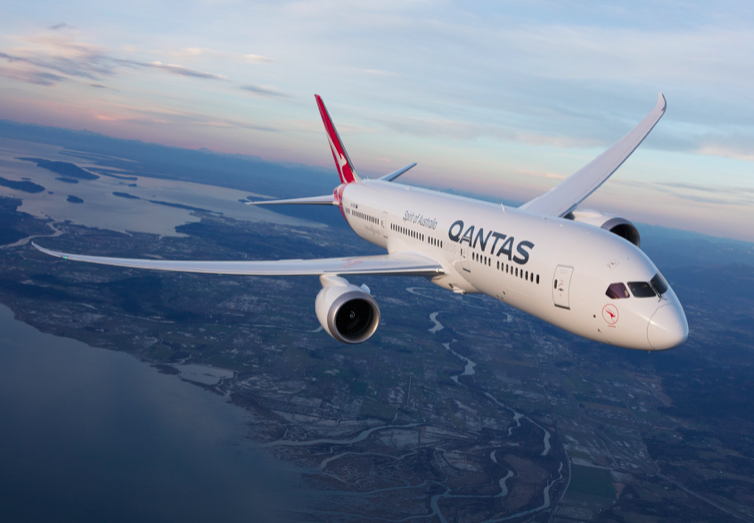After standing down almost all of its entire international network for more than a year, Qantas Airways is coming back with a vengeance. The carrier is adding Delhi to its map, accelerating the return of its Airbus A380s and will resume flights to seven long-haul destinations weeks — and in some cases more than a month — earlier than planned on the back of the success of Australia’s Covid-19 vaccination program.
“Australia is en route to be one of the most vaccinated countries in the world,” Australian Prime Minister Scott Morrison on Friday. “And that means planes get back in the sky.”
Morrison spoke at a joint event with Qantas during which the airline rolled out its latest schedule expansion. The Oneworld alliance carrier will connect Sydney to Delhi — its first scheduled Indian destination since ending Mumbai flights in 2012 — thrice weekly with an Airbus A330 from December 6 through March, with an eye on extending that further depending on demand. Flights to Bangkok, Fiji, Johannesburg, Phuket, and Singapore will all resume weeks early. And, in response to strong demand for its Sydney-Los Angeles flights that resume November 1, Qantas will return its A380s to the route three months early in April, and the airline is in talks with Boeing about taking delivery of three stored 787-9s from April as well.
“Demand has been massive,” said Qantas CEO Alan Joyce, who spoke at the event with Morrison, of the airline’s London and Los Angeles flights that both resume at the beginning of November. “In a few hours, a large number of those flights sold out.”
Joyce added that Qantas has seen a “phenomenal reaction” from travelers to the federal and state border reopenings in Australia.
Australia and its states have tied their reopenings to Covid-19 vaccination rates. The federal government expects to meet its 80 percent threshold for the national border by the time Qantas resumes London and Los Angeles flights on November 1. As of Thursday, almost 72 percent of Australians over the age of 16 were fully inoculated, and 86 percent had received at least one jab, data from the Australian Department of Health show. And, critical to Qantas’ Sydney hub, 83 percent of New South Wales residents over 16 years old were vaccinated as of October 19. Victoria will also open its borders on November 1, with other states expected to follow soon after.
The successful vaccination program, tied with clear guidelines from the Australian government, is making the country a model for reopening. Although quarantine-free travel is initially limited to citizens, permanent residents and immediately family who are fully inoculated against Covid-19, demand is robust, and Joyce said he expects the reopening to expand to foreign visitors soon. Speaking on October 20, United Airlines CEO Scott Kirby spoke positively of the country’s reopening and said it would likely lead the travel recovery in the Asia-Pacific region. United was the second-largest carrier between Australia and the U.S. behind Qantas in 2019, Cirium schedules show.
IATA Director General Willie Walsh has repeatedly backed risk-based measures, including both vaccination status and testing, for reopening. Speaking in Boston earlier in October, he said Australia’s reopening — and the demand seen by airlines — is an example of the success of measures in restarting travel…



